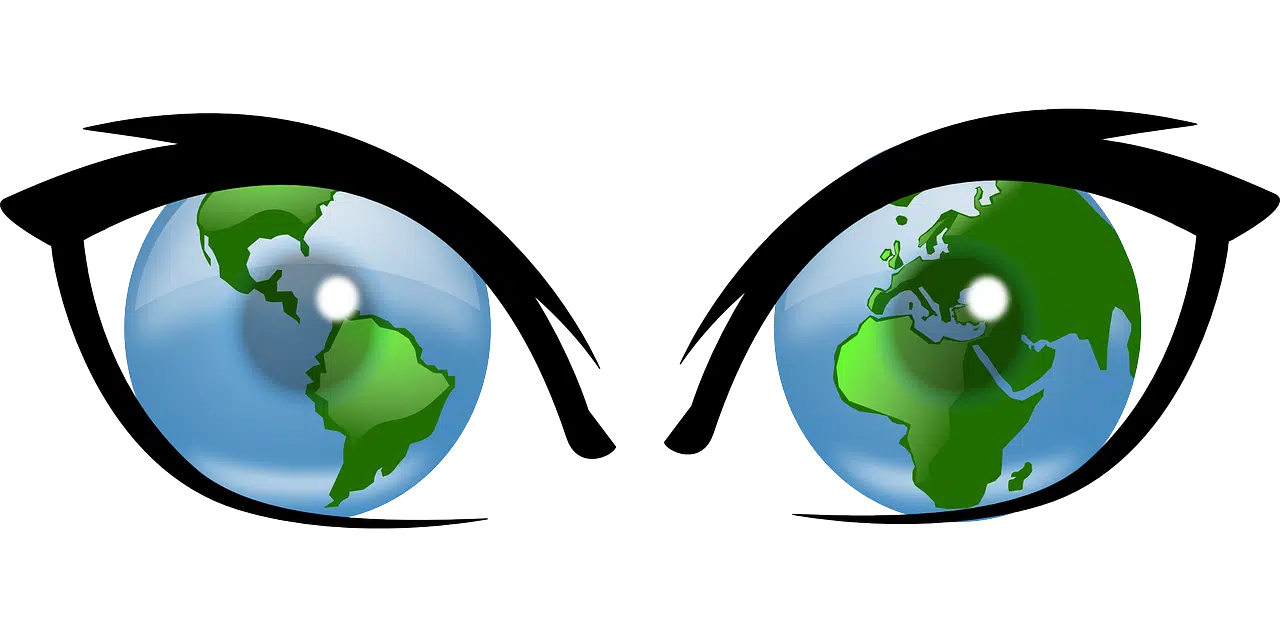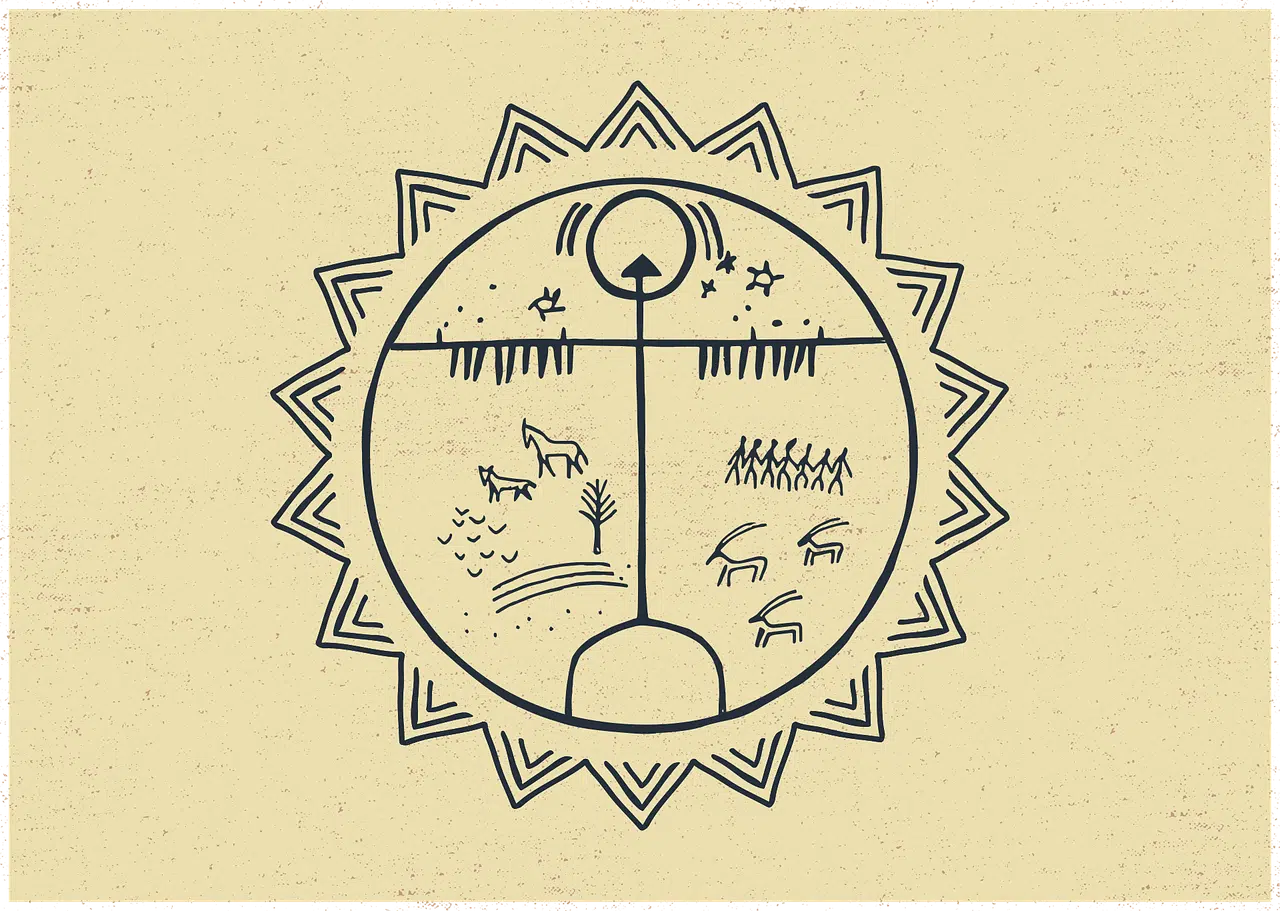
A worldview is a way of seeing the world.
Worldview is the way of seeing and interpreting the world . It is the set of beliefs that allow us to analyze and recognize reality based on our own existence. We can talk about the worldview of a person, a culture , a time , etc.
For example: "The Aztec worldview was very complex and included a fluid exchange between the world of the living and the world of the dead," "The most radicalized Muslims have a worldview very different from ours, but it is difficult to understand their actions." » , «You have a very particular worldview that I cannot accept» .
The etymology of worldview
Before entering fully into the analysis of the meaning of the term worldview, it is interesting and essential that we resort to establishing its etymological origin. In this sense, we could highlight that it comes from a neologism, Weltanschauung , formed by words from the German language: Welt , which can be translated as "world" , and anschauen , which is synonymous with "look".
Specifically, it is believed that it was the German philosopher Wilhelm Dilthey who created this neologism in the period between the end of the 19th century and the beginning of the 20th century .
However, we cannot ignore either that, if we choose to resort to Greek, we will discover that cosmovision is a word that is made up of cosmos , which is equivalent to "order" , and the verb visio , which means "to see" .
A comprehensive look
It is important to keep in mind that a worldview is comprehensive ; That is, it covers aspects of all areas of life. Religion , morality , philosophy and politics are part of a worldview.
Social relationships, culture and education are key when it comes to the development of an individual worldview. However, we must consider that human beings are social beings and, therefore, no one grows up completely isolated and oblivious to their environment.
From its interpretation of the universe, human nature and reality in its broadest sense, a people develops its worldview. This is reflected in the mythology , traditions and spirituality of the community.
Theology , sociology and anthropology are some of the sciences that, from different perspectives, analyze worldviews.

Globalization that contributes to a kind of cultural uniformity can cause different worldviews to be lost.
Characteristics of a worldview
Worldviews that usually revolve around big questions or dilemmas : what happens to a person when they die; what exists and why; how you can establish that something is right or wrong; or what is the meaning of human existence.
All these considerations affect the world view of each subject. The worldview stands as a paradigm , since it is taken as a basis for understanding multiple issues and is accepted without questioning.
In a worldview different myths usually coexist, such as the myth of the origin and the myth of the end of the world . In this way, explanations are provided that can be related to the concept of time and the concept of space of the group. These principles, postulates or theories, in turn, usually appear in different ways in rites and ceremonies .
Art, religion, philosophy and politics
Art is a vehicle that allows one to express or reflect a person's worldview. Through artistic manifestations, the subject expresses his or her representation of the world and its values.
It can be said that a religion, an ideology , philosophical systems and political doctrines form worldviews, since they provide an interpretive framework to interact with reality and develop certain patterns that have to do with ethics and morality. Christianity , Judaism , Islam , Hinduism , Buddhism , Humanism and Marxism , in that sense, can be considered worldviews. Those who try to impose their worldview by force and do not accept dissent are known as fundamentalists .

Symbolism is important in a worldview.
Examples of worldview
As we already indicated, religions can be considered worldviews. Of course, those who opt for atheism or agnosticism do not share religious precepts.
Take the case of Catholicism . His worldview includes creation myths (he maintains that God created Adam and Eve - the first human beings - from dust) and other narratives of supernatural characteristics, such as the myth of the trinity (indicates that God is Father , Son and Holy Spirit ) or the myth of the flood (points out that God caused the Universal Flood but guided Noah to build an ark and save his family and various animals).
The Catholic worldview also contemplates that God is omnipresent, omnipotent and omniscient : he is everywhere, has absolute power and knows everything. He is the one in charge of judging people once they die and will also be responsible for the Final Judgment that will mark the end of time.
A Catholic , according to his worldview, can communicate with God through prayer and ask him for what he wants or needs. This worldview accepts that divine intervention on the real level is possible, something that can only be sustained through faith . Thus, if a believer falls ill, he is likely to pray to God for healing, trusting that He can heal him. For an agnostic or atheist, however, such behavior makes no sense because it is not framed in what the realism of the situation demands.
Although it is not common, a person can develop a change in worldview . Such modification may be the result of a personal search or be influenced by external pressures. During the colonization of America by Europeans, to mention one case, the indigenous worldview was losing space as the aborigines adopted Catholicism.
